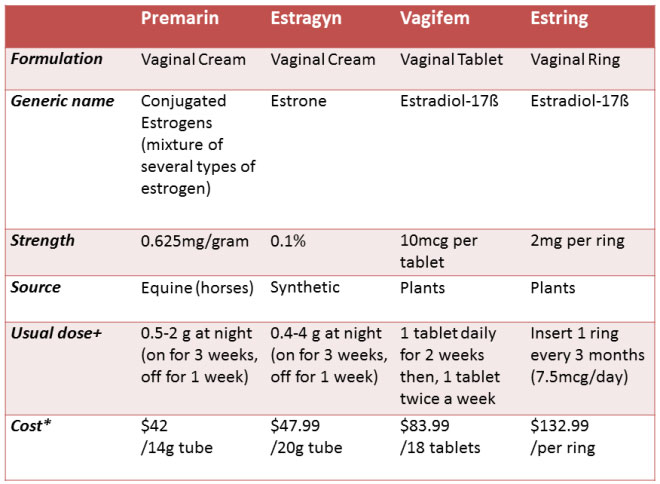
Photo Credit: by Silviarita, from pixabay
Menopause is an inevitable aspect of aging in women but sometimes may be stigmatized as a disease condition. Some people find it uncomfortable to talk about what happens during this time in a woman’s life. Luckily, times are changing. Today’s topic will dive into options and helpful tips for managing menopausal symptoms. Around menopause, a woman’s body changes in many ways and her needs also change and evolve. Some women experience vaginal dryness, others experience intense body temperature changes and others still experience an amalgamation of various body changes. Some women turn to prescription products, often hormone replacement therapy, to help manage the changes they face, while others rely on natural products. One method is not superior to another, as long as such methods are implemented with care and with the full involvement of your healthcare provider. When menopausal symptoms are limited to vaginal dryness and irritation, it may be recommended to use a Vaginal Hormone Replacement Therapy (HRT) that can be applied locally at the area. Here is a quick review of vaginal HRT products, their benefits and safety as well as other natural options for managing menopausal symptoms.
How do Vaginal HRT products work?
Vaginal HRT products are applied or inserted into the vagina to relieve menopausal symptoms such as vaginal dryness, itching, burning and pain during intercourse that occur due to reduced estrogen production as women age. Most products used to treat menopausal symptoms contain estrogen and progesterone because using estrogen alone can increase the risk of endometrial cancer in women with a uterus. Women without a uterus do not require combination of estrogen and progesterone. Since vaginal HRT products contain low dose of estrogen, they can be used alone without progesterone at the recommended low doses. Vaginal HRT products work by giving the body a boost of estrogen to compensate for hormone decline due to aging at menopause.
Vaginal HRT vs. other HRT and side effects
HRT comes in various forms such as oral tablets (Estrace, Premarin tablets), patches (Estradot), topical gel (Estrogel) and vaginal products (Estring vaginal ring, Premarin cream, Estragyn cream and Vagifem tablets). Almost all the HRT product formulations are absorbed into the systemic circulation to achieve the expected results. However, the vaginal cream has significantly fewer whole body side effects because less estrogen is absorbed all over the body; most of the estrogen absorbed works directly in the vagina to relieve the vaginal-related menopausal symptoms. Vaginally applied cream or tablets have more targeted effects since the estrogen is absorbed locally. Some side effects of vaginal Premarin cream are: headache; breast pain; irregular vaginal bleeding or spotting; stomach or abdominal cramping or feeling bloated; vaginal yeast infections; hair loss; mood changes and nausea and vomiting. Oral Premarin tablets may be useful for other menopausal symptoms such as to prevent bone loss.
What are the vaginal HRT products?
The 3 main vaginal HRT products are Premarin, Estragyn and Vagifem. Premarin is a vaginal cream. Estragyn is also a vaginal cream, while Vagifem is a vaginal tablet. All three products are used to treat menopausal symptoms. These products differ in how often they are used. Your doctor and pharmacist will counsel you regarding the specific dosing and frequency that’s right for you. The choice of which product to use depends on your personal preference and the suggestions of your health care provider.

Photo Credit: by @CANPharmacyWorld
+consult with your healthcare provider regarding the dosing that is best suited to you
*costs are approximate and may change based on your location and pharmacy
When is HRT not recommended?
HRT is not recommended in women who have a history of blood clots, heart attacks, heart or liver disease, stroke, cancer or who may be pregnant.
At what age should a woman stop using Vaginal HRT?
The use of hormone replacement therapy products is typically not recommended in women greater than 60 years old. Using hormone replacement therapy above may increase the risk of blood clot formation that may cause stroke or heart attack. Your doctor will assess your risk versus benefit to decide if you can still take it when over 60 years of age. Be sure to review with your doctor at least once per year if you need to continue you HRT.
Is Vaginal HRT safe for long-term use?
There is no strict limit to how long a woman can use vaginal HRT. However, shorter durations of treatment result in less medication-related risks and complications. Average of 5-6 years is recommended to reduce the risk of breast cancer. It is important to have a continuous discussion with your doctor on the duration of treatment that’s best for you.
Can I stop Vaginal HRT cold turkey, or is gradual tapering required?
If you are on the lowest dose for a shorter period of time, then it is possible to quit cold turkey. However, higher doses may require a slow decrease in the dose given over time. The main reason women may benefit from a slow taper in the dose is to prevent the onset of the menopausal symptoms they are avoiding, such as hot flashes, increased vaginal dryness among others. The decision to stop hormone replacement therapy is one you should make with your primary care provider.
What are natural options for treating/managing menopausal symptoms?
Lifestyle changes may help with managing menopausal symptoms. Incorporating regular exercise into your daily routine can help with the mood changes and hot flashes associated with menopause. Decreasing the intake of caffeine, alcohol, spicy foods and hot beverages can also help with relieving menopausal symptoms. Quitting smoking can also help alleviate menopausal symptoms.
Natural products such as black cohosh, dong quai, red clover leaf and ginseng have been used to relieve menopausal symptoms; however, evidence shows that they are not effective and may actually have adverse effects such as liver damage. If you have any questions or concerns regarding the safety of any product that is marketed for treating menopausal symptoms, for your safety, consult with your pharmacist or another member of your healthcare team before using it.
Furthermore, the use of vaginal lubricants such as KY-Jelly and Astroglide can provide quick and short-term relief for painful intercourse. The great thing about vaginal lubricants and moisturizers is that they are hormone free and medication free so they seem to be a safe option. Apart from helping with lubrication during intercourse, vaginal moisturizers such as Replens, Zestica Moisture and Gynatrof can help to preserve the integrity of the vaginal tissues and prevent further thinning of the vaginal walls.
References
Pathak, N. (2017). Quitting hormone replacement therapy. Retrieved August 15, 2021 from https://www.webmd.com/menopause/features/quitting-hormone-replacement-therapy
Suffoletto, J. A., & Hess, R. (2009). Tapering versus cold turkey: symptoms versus successful discontinuation of menopausal hormone therapy. Menopause (New York, N.Y.), 16(3), 436–437. https://doi.org/10.1097/gme.0b013e3181a057db--https://www.ncbi.nlm.nih.gov/pmc/articles/PMC2758567/
Todd, N. (2019). Understanding menopause—treatment. Retrieved August 15, 2021 from https://www.webmd.com/menopause/guide/understanding-menopause-treatment
###
Your email address will not be published. Required fields are marked with *.